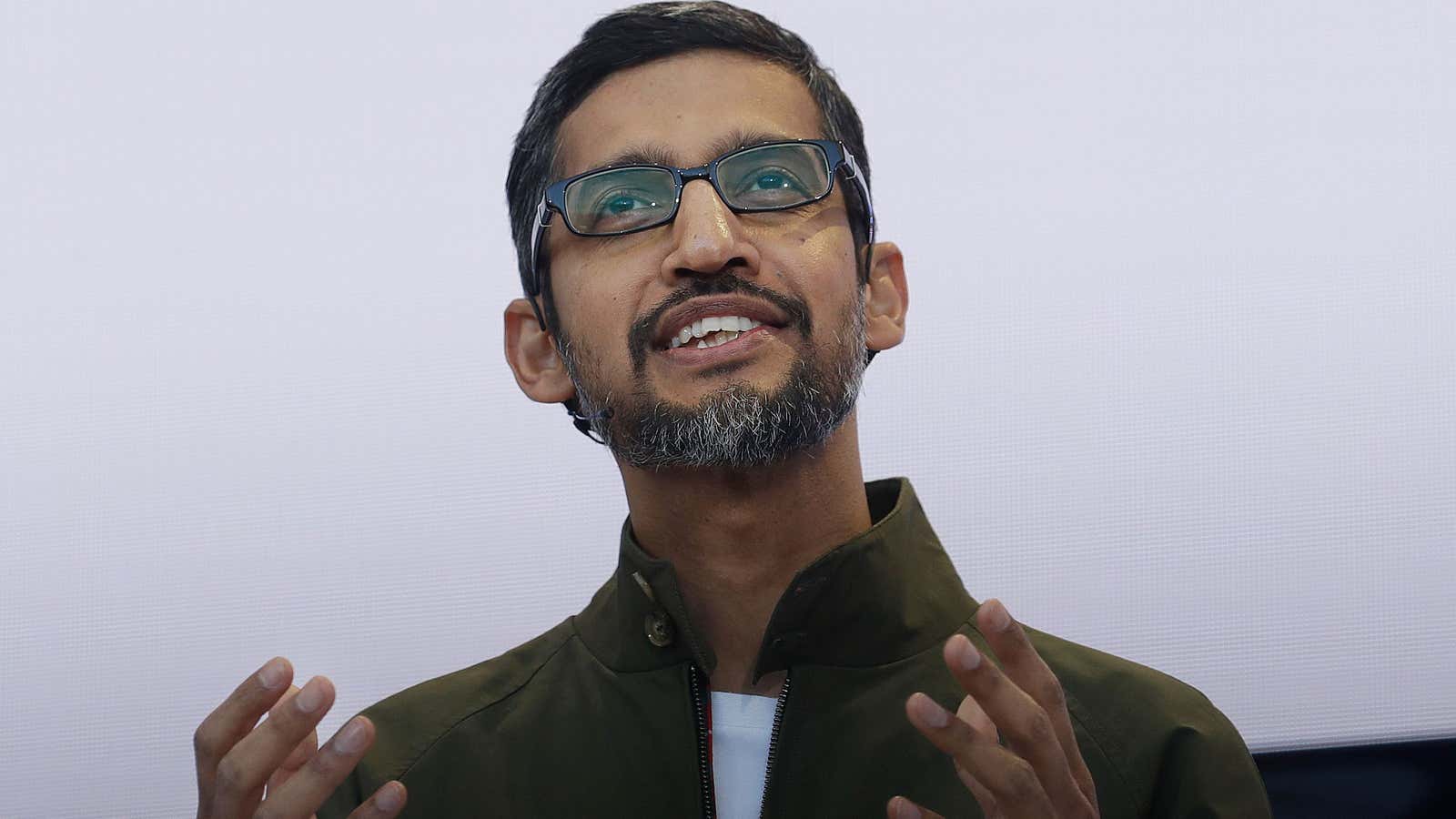Google employees around the world staged rolling walkouts today (Nov. 1), protesting the company’s mishandling of several past sexual harassment allegations.
Despite the tumultuous events of the day, Google CEO Sundar Pichai appeared at The New York Times’ DealBook conference in New York City this afternoon, where he could not avoid the topic.
“Look, obviously, it’s been a difficult time. There’s anger and frustration within the company. We all feel it. I feel it, too,” he told Times business journalist Andrew Ross Sorkin, who interviewed him on stage. “Google sets a very, very high bar, and, obviously, we didn’t live up to our expectations,” he said.
Late last month, the Times published a story revealing that the tech giant had paid Andy Rubin, an executive known as “the father of Android,” a $90 million package as he left the company in 2014, following an internal investigation into complaints against him. The accusations against Rubin, and other incidents involving other male executives, were not publicized at the time.
Pichai had already sent a memo to employees, expressing his support of the walkout; at the conference, he reiterated his support both for the women who came forward to report the harassment and for Google staff expressing frustration about the company’s response.
“You know, the first step you take in these things is to acknowledge and apologize for past actions, the pain they cost. We sincerely did” at Google, he said.
“Secondly, you know, words alone aren’t enough and, you know, you have to follow up with actions. And to be very clear, these incidents are from a few years ago and we’ve evolved as a company,” he said. “As CEO, it’s been very important to me, personally meaningful to me, that we draw a hard line on inappropriate behavior and we have done so for the past few years.”
“Moments like this show that we didn’t always get it right,” he added, promising that concrete steps will follow.
Pichai reminded the audience that Google did take “hard” actions against accused employees: 48 people were terminated in the last two years, he said.
Asked whether he thought there may be a systemic problem at Google, if perhaps the company’s culture played into the high number of harassment cases, Pichai responded that sexual harassment is “a societal problem.” Noting that Google is a large company, “we’ve had our share of issues, ” he said.
The shortage of female representation in Silicon Valley broadly has been a “causal” factor in sexism there, he argued, and perhaps an investigation was needed to determine “whether there was a deeper problem that led to something like this.”
The conversation did not veer into Google’s beginnings, an era in which, according to a recent book, co-founder Sergey Brin was routinely found in the masseuse room with young female employees and male leaders hired and dated attractive young administrative assistants.
“We are definitely doing our best,” said Pichai, “and you know, I’m sure most people will tell you for the past couple of years we have drawn a very hard line and it is a different place.”
What was Google’s position on confidentiality agreements signed by departing employees, which protect the company (because they mean a former employee cannot bring valuable information to other firms) but also allow a predator to be hired elsewhere? Pichai said Google—like many, many other companies—is grappling with this question.
